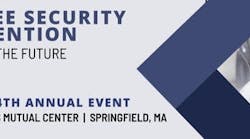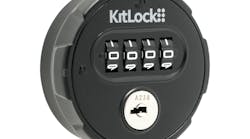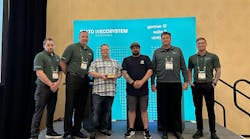Fifty years ago the National Locksmith Distributors Association (NLSA) was formed. This association was a comprised of dozens of popular distributors from across the United States and Canada. NLSA existed until the early 1990s when they changed their name to the Security Hardware Distributors Association (SHDA).
At about the same time as NLSA was formed, the Associated Locksmiths of America (ALOA) was also formed. The ALOA logo features bit keys. A shield on the logo shows an opening to accept a bit key, and two bit keys are arranged under the shield. "Locksmiths You Can Trust" is emblazened around the logo. ALOA recently sent out an E-mail asking members to vote for permission to change "Associated Locksmiths of America" to "ALOA Security Professionals Association."
It is noteworthy that in both the SHDA and ALOA cases, the name "locksmith" is missing from their new or proposed association names.
'Locksmith' is defined as someone who makes or repairs locks according to my American heritage dictionary. In all my years I have never made a lock. Handmade locks became a thing of the past with the advent of mass production in the late 1800s. The question becomes whether 'locksmith,' as perceived by the public and written in the dictionary, is really what we do today.
There certainly are people in our industry today who are locksmiths in the true sense of the word. They concentrate on repairing locks, fitting keys and opening locked doors. This is a noble and necessary part of the security business.
There are also many other facets to the security field today. Just as mass production signalled the start of the machine age, computers and electronics have changed the security field forever. People who have never cut a key in their life are now actively pursuing a profitable career as a security professional either in the design, installation or maintenance of access control systems.
Obviously SHDA and ALOA have noticed this new kind of security person. By removing 'locksmith' from their names they are broadening their potential sphere of influence while removing any name stigma that may prevent security professionals from joining their ranks.
There are numerous reasons why the public demand for traditional locksmiths is not what it once was. However, the need for physical security in some form will always be expanding. Each of us must decide which part of the security field is most profitable while at the same time recognizing that new and different technologies and members will be entering our industry.





